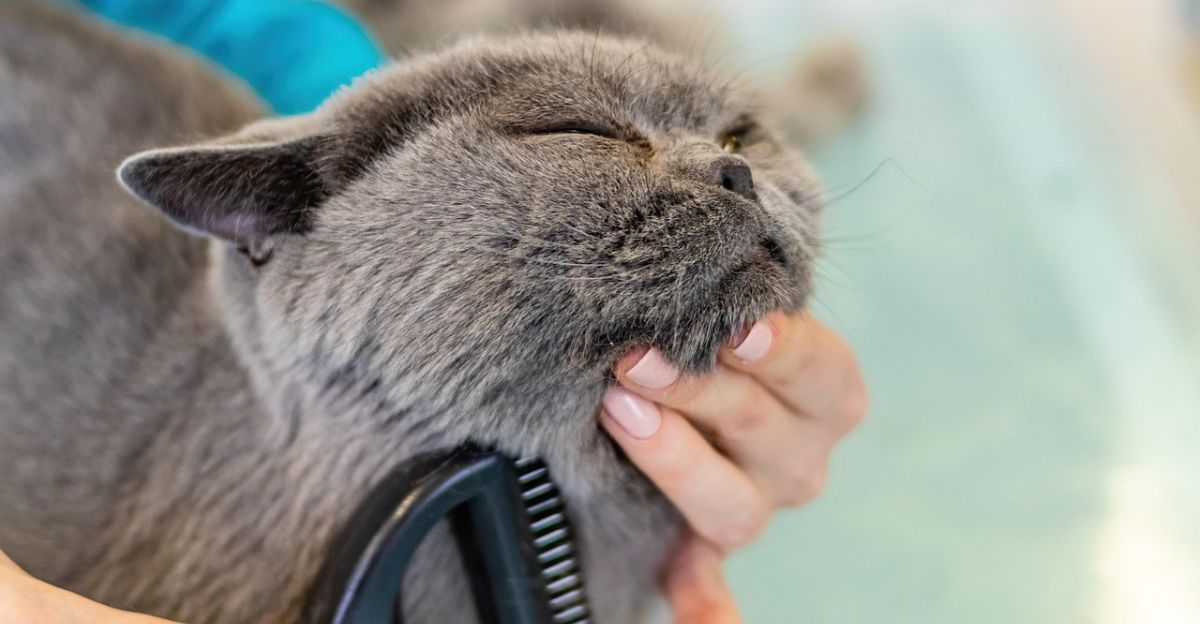Do Cats Like Being Brushed? How to Know, What to Do, and How to Make Them Love It

Cats are famously independent creatures, and while they spend hours grooming themselves, not all felines are thrilled when you show up with a brush. But brushing your cat isn’t just about beauty—it’s about bonding, health, and comfort. So, do cats like being brushed?
Short answer: Some do, some don’t—but all cats benefit from it. The good news is, with the right tools and approach, you can turn brushing into a ritual your cat actually enjoys.
Why Does Brushing Matter for Cats?
Even the most self-sufficient kitty needs a little help:
● Reduces shedding & hairballs
● Prevents painful mats (especially in long-haired breeds)
● Improves skin circulation & coat shine
● Early detection of lumps, fleas, or skin issues
Brushing isn’t just grooming—it’s a health check and a love language.
How Can You Tell If Your Cat Likes Being Brushed?
Not all cats purr on cue, but here are signs your cat is enjoying the grooming session:
|
Behavior |
What It Means |
|
Purring or kneading |
Enjoyment and relaxation |
|
Leaning into the brush |
Wants more! |
|
Slow blinking |
Contentment and trust |
|
Exposing belly or side |
Feels safe and happy |
|
Staying still |
Accepting and comfortable |
Warning Signs to Stop:
● Tail swishing or twitching
● Ears back or flattened
● Skin twitching
● Hissing, biting, or sudden escape
If your cat shows resistance, don’t push it. Rebuild trust with short, gentle sessions.
What If My Cat Hates Brushing? Here's What to Try
Some cats associate grooming with discomfort. But that can be changed:
● Use gentle tools
● Mist lightly before brushing to soften tangles
● Start small: one-minute sessions with praise
● Avoid high-sensitivity areas at first (like tail base, belly)
● Pair with treats or playtime for positive association
Furgo: Mist + Comb = One-Step Comfort that reduces tugging, static, and stress.
What Tools Help Make Brushing More Enjoyable?
|
Tool |
Best For |
Comfort Rating |
|
Silicone grooming glove |
Cats that hate traditional brushes |
★★★★★ |
|
Soft bristle brush |
Short-haired cats |
★★★★★ |
|
Slicker brush |
Medium to long hair |
★★★★ |
|
All coat types & nervous cats |
★★★★★ |
The Furgo delivers a quiet mist to hydrate the fur and reduce breakage, making brushing smoother and more enjoyable for sensitive cats.
How to Build a Brushing Routine Your Cat Will Love
● Pick a calm, cozy time (after naps or meals)
● Let your cat sniff the tool first
● Mist lightly, then comb gently in the direction of fur growth
● Praise, pause, and try again tomorrow
● Aim for consistency over intensity—it’s about habit, not perfection
Brushing doesn’t have to be a battle. With the right rhythm, it becomes a ritual.
Why FurGo's Misty Spray Comb Makes Brushing Better
At FurGo, we reimagined brushing for real life. Our Furgo was built to solve one simple problem: how do you groom your cat without the drama?
Why cat parents love Misty:
● Comb and mist in one hand
● Works with water or leave-in conditioner
● Quiet spray calms anxious pets
● Detangles without pulling or static
● Easy to clean, easy to love
It’s not just grooming. It’s connection made simple.
Final Thoughts: Brushing Is a Bond, Not a Battle
Whether your cat lives for the brush or runs from it, brushing can become a quiet moment of care that strengthens your bond. With the right approach and tools, even skeptical cats can learn to love it.
So yes—cats can like being brushed. And they’ll love it even more when it feels like love.
Try the Furgo and turn every brush into a moment your cat looks forward to.
🐾 Frequently Asked Questions
Q: Do cats enjoy being brushed?
A: Some cats love being brushed, while others need time to adjust. Cats that enjoy brushing may purr, lean into the brush, or stay relaxed. Even if your cat resists at first, with the right tools and a gentle routine, many grow to enjoy it.
Q: How can I tell if my cat likes being brushed?
A: Look for signs like purring, kneading, leaning into the brush, slow blinking, or exposing their belly. If your cat swishes their tail, flattens their ears, or tries to escape, they may be uncomfortable or overstimulated.
Q: Why is brushing important even if my cat grooms itself?
A: Brushing removes loose fur, prevents mats, reduces hairballs, improves coat health, and helps detect skin issues early. It also builds trust and strengthens the bond between you and your cat.


